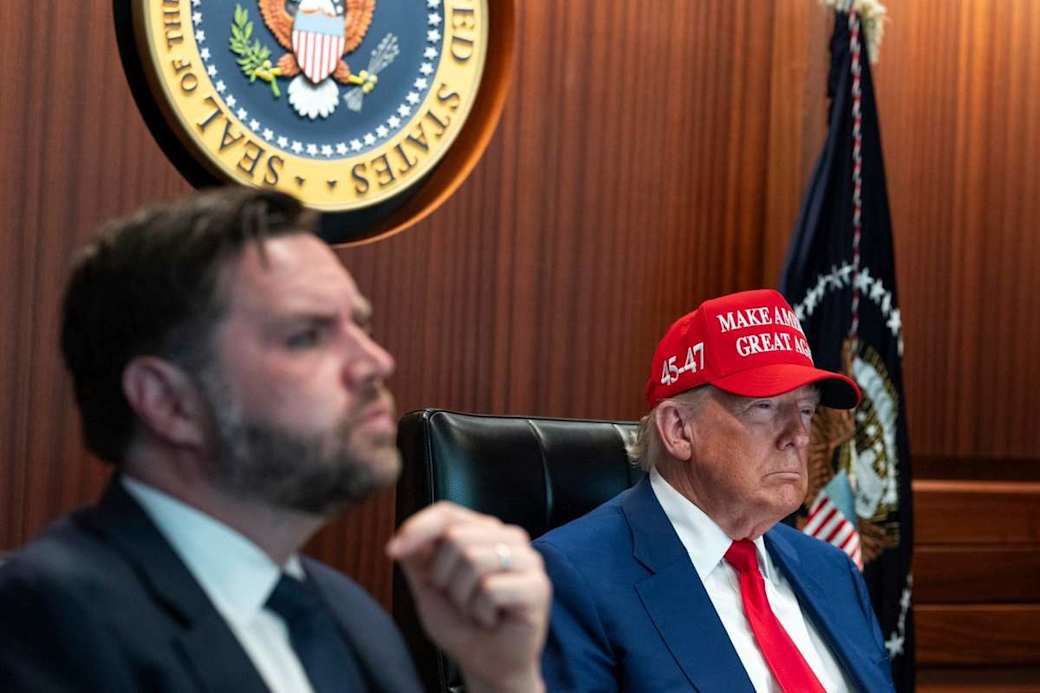“We Took the Bomb Out of Their Hands,” Says Trump After Iran Nuclear Strikes
WASHINGTON, June 22, 2025 – President Donald Trump hailed U.S. airstrikes on Iran’s nuclear facilities as a decisive blow, declaring, “We took the bomb out of their hands,” in a televised address from the White House. The strikes, which targeted key sites linked to Iran’s nuclear program, have escalated tensions with Tehran, which vowed a “crushing response” to what it called an act of war.
U.S. Strikes Target Nuclear Facilities
The Pentagon confirmed that U.S. forces conducted precision airstrikes on Saturday night, hitting Iran’s Natanz and Fordow nuclear facilities, among others. Trump described the operation as a preemptive measure to stop Iran from developing nuclear weapons, claiming intelligence showed “clear and imminent danger.” “We had no choice but to act,” he said. “Iran was weeks away from a breakout, and we stopped them cold.”
U.S. officials reported that the strikes destroyed critical infrastructure used for uranium enrichment, setting back Iran’s nuclear ambitions by years. No official casualty figures were released, but Iranian state media claimed “dozens” were killed, including scientists and military personnel. The Pentagon emphasized that the operation avoided civilian areas and was designed to minimize loss of life.
Iran’s Furious Response
Iran’s Supreme Leader, Ayatollah Ali Khamenei, condemned the strikes as “a cowardly attack” and promised “severe and unforgettable consequences.” President Ebrahim Raisi, speaking from Tehran, called the U.S. actions a “flagrant violation of sovereignty” and hinted at retaliatory measures, including potential attacks on U.S. bases in the region. Iran has mobilized its Revolutionary Guard Corps and suspended all cooperation with the International Atomic Energy Agency (IAEA).
Iranian officials also signaled increased support for proxy groups like Hezbollah and Houthi rebels, raising fears of a broader regional conflict. Protests erupted in Tehran and Baghdad, with demonstrators burning U.S. flags and chanting anti-American slogans.
International Reactions
The strikes have drawn mixed responses globally. Israel, a staunch opponent of Iran’s nuclear program, praised the U.S. action, with Prime Minister Benjamin Netanyahu calling it “a bold and necessary step.” However, allies like the United Kingdom and France urged caution. British Prime Minister Keir Starmer called for Iran to return to nuclear talks, warning that escalation could “destabilize the entire region.”
Russia and China condemned the U.S., with Russian Foreign Minister Sergey Lavrov labeling the strikes “reckless” and Chinese officials calling for an end to “unilateral aggression.” The United Nations Security Council is set to hold an emergency meeting to address the crisis.
Oil markets reacted sharply, with Brent crude prices jumping 10% amid concerns over potential disruptions in the Strait of Hormuz, through which 20% of global oil passes. Analysts warn that further escalation could trigger a global energy crisis.
Trump Defends Aggressive Stance
Speaking to supporters at a rally in Florida, Trump doubled down, framing the strikes as a fulfillment of his “America First” policy. “We’re not going to let a rogue regime threaten the world with nukes,” he said, accusing the previous administration of “weakness” in dealing with Iran. He also warned Tehran against retaliation, stating, “They’ll regret it if they try anything.”
Critics, including some congressional Democrats, questioned the timing and legality of the strikes, accusing Trump of bypassing Congress and risking a wider war. Senate Minority Leader Chuck Schumer called for transparency, demanding a full briefing on the intelligence that prompted the operation.
A Region on Edge
The strikes have heightened fears of a full-scale conflict in the Middle East. Iran’s allies, including Hezbollah and Iraqi militias, have vowed to target U.S. and Israeli interests. Israel has bolstered its air defenses, anticipating possible Iranian missile or drone attacks.
Experts warn that the situation could spiral out of control without swift diplomatic intervention. “Trump’s rhetoric is bold, but it leaves little room for de-escalation,” said Dr. James Carter, a Middle East analyst at Georgetown University. “Iran’s response will determine whether this becomes a regional war.”
As global leaders scramble to contain the fallout, the world watches anxiously to see if Trump’s gamble will neutralize Iran’s nuclear threat or ignite a broader conflict with far-reaching consequences.
